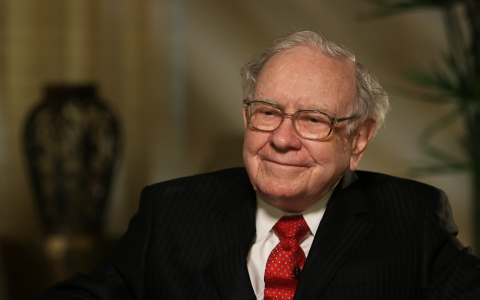
(INC.) Warren Buffett's wisdom has an impact--whether it's his advice on increasing net worth, his one-liner on standing out as a leader, or his ability to role-model consistency. And that's just scratching the surface.
But no one knew, until now, that the Oracle of Omaha had a major hand in keeping the financial crisis of 2008 from careening into Great Depression II.
An HBO documentary that debuted on Monday, Panic: The Untold Story of the 2008 Financial Crisis, described a crucial phone call Buffett made to then-Treasury Secretary Hank Paulson. It was the middle of the night in October 2008 and Paulson was fast asleep. He'd just finished a long day huddling with policymakers on his staff, brainstorming ideas to urgently avoid a full-blown economic meltdown.
The Emergency Economic Stabilization Act had just passed, in an effort to buy assets of failing banks to prop them up. Investors were still jittery, though, and with good reason. Wachovia and Washington Mutual banks had just failed, the biggest such failures in U.S. history.
So the sleeping Paulson was laboring to find a quicker, more potent solution--and he was shocked to be woken up by none other than Warren Buffett on the line with an idea for how to turn the financial crisis around.
Buffett told Paulson to inject capital into the banks rather than buying the bank's assets. The germ of an idea led the Treasury to pour $250 billion into the banks, effectively avoiding a much greater crisis.
To this day, the bailout plan still stirs negative emotions in many. Many did and still do feel that the plan allowed Wall-Streeters to save their rich friends rather than serve the common person.
Regardless of what you think of the Buffett/Paulson idea, two lessons from this story deserve attention.
Paulson's reaction demonstrated two important principles of creative problem-solving.
First, Paulson was smart enough to know that he needed to be open to ideas from anywhere. He could have let his ego get in the way, not wanting to admit he needed a midnight call from a financial-fairy to magically save the day. But he didn't.
You might find yourself in a situation where you're cloistered with the same team as always, trying to solve a tough issue in a hurry. Be careful to step back and solicit broader input as well, and to not feel embarrassed if someone comes up with an idea that others may feel you should have come up with.
In crisis, real leaders let the ideas lead, not the ego.
Second, Paulson knew that the idea was controversial--but he recognized the idea, championed it, and had the fortitude to see it through to conclusion, without wavering. Coming up with creative solutions to problems means you have to have an open-mindedness and alertness to spot those ideas to begin with, and the courage and discipline to see them through.
I have seen many a creative idea crash on the rocks because those ideas were unconventional and had opponents--and because the leader lacked the courage and conviction to usher them to fruition. Having the acuity to spot the idea is only the first step. Creativity needs a stoic shepherd.
Let's hope the problem you need to creatively solve isn't one of this epic proportion. Whatever it is, though, channel the openness, courage, and discipline of Hank Paulson to solve it.



